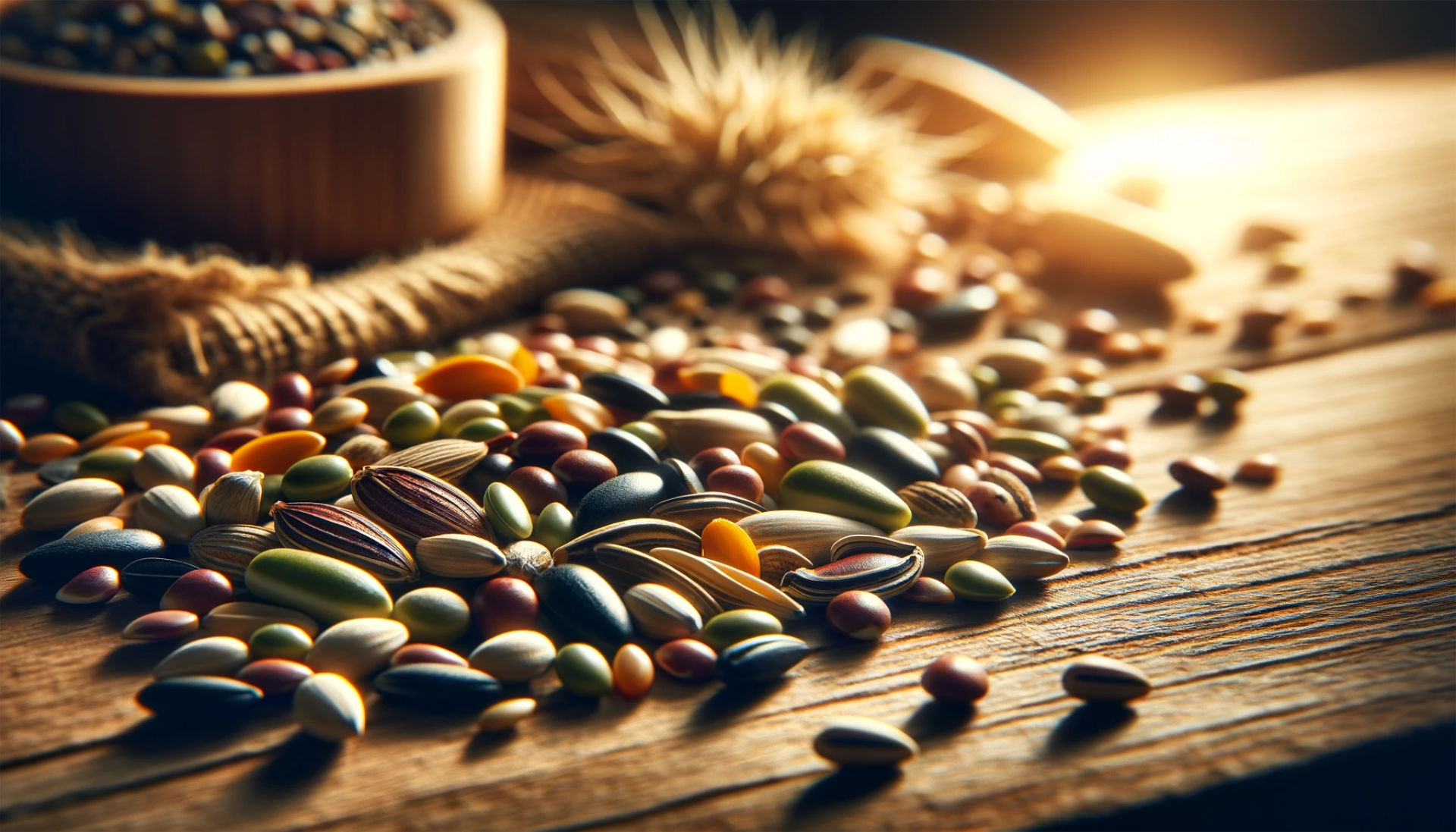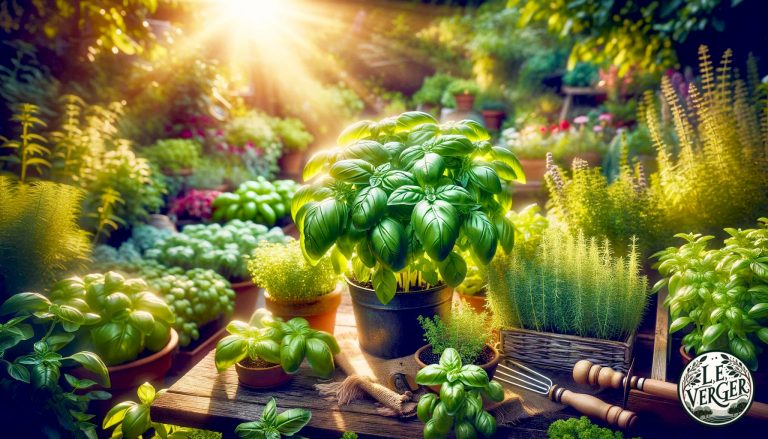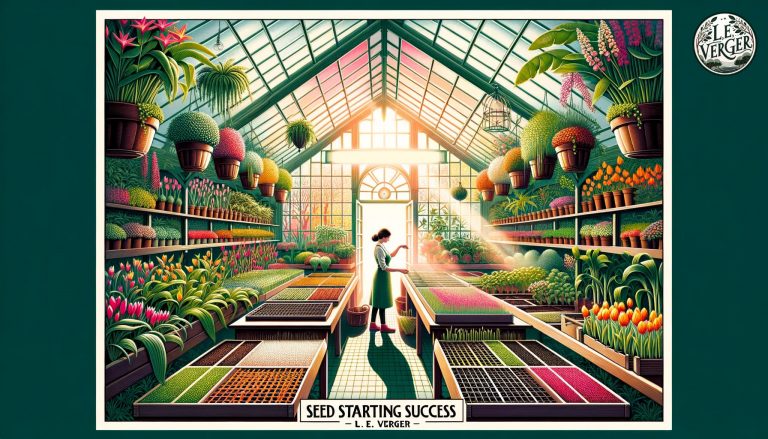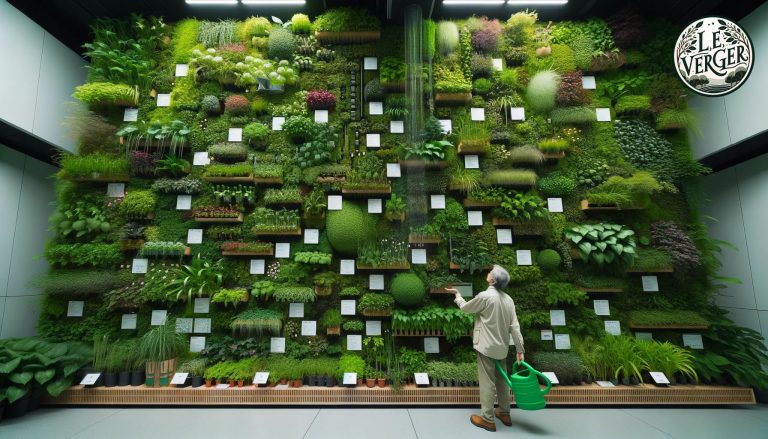Organic Seed Selection: A Foundation for Healthy Growth
Unlock the secrets of organic seed selection for thriving gardens. Explore tips, success stories, and pitfalls to avoid. Start your green journey today!
Introduction to Selecting Organic Seeds
When gardening or farming, success often begins with a small but mighty foundation: the seeds you choose to sow. Organic seed selection is a cornerstone for healthy growth in sustainable agriculture and responsible gardening. The seeds you plant today hold the potential to yield bountiful harvests, and making the right choice can make all the difference.
In this article, we’ll delve into the world of organic seeds, shedding light on why they matter and how they can significantly impact the well-being of your plants. Whether you’re a seasoned gardener or just starting your journey, understanding the significance of organic seed selection is key to reaping the rewards of your green thumb.
Stay with us as we explore the benefits of organic seeds, the factors you should consider when choosing them, and practical tips for successful selection. Along the way, we’ll share inspiring stories of those who have embraced the organic seed path and achieved remarkable results.
Understanding Organic Seeds
Before diving deeper into organic seed selection, let’s first grasp what makes these seeds unique and vital for conscientious growers.
Organic seeds, as the name suggests, originate from organic farming practices. This means they are cultivated without the use of synthetic pesticides, herbicides, or genetically modified organisms (GMOs). Instead, organic seeds thrive in environments that promote biodiversity, soil health, and sustainable agricultural practices.
So, why choose organic seeds over their conventional counterparts? The answer lies in their purity and commitment to nature. Organic seeds represent a commitment to sustainable and eco-friendly agriculture. When you plant organic seeds, you’re not just growing plants; you’re nurturing an ecosystem that works in harmony with the environment.
The absence of synthetic chemicals in organic seed production contributes to healthier soil, which, in turn, yields more nutrient-rich crops. These seeds are like a promise of a better future for your garden or farm – a future where you can reap the rewards of your efforts without compromising on health or sustainability.
As we proceed, we’ll explore the myriad benefits of opting for organic seeds and how they align with the principles of responsible and mindful gardening. So, stick around as the journey to greener and healthier growth continues.
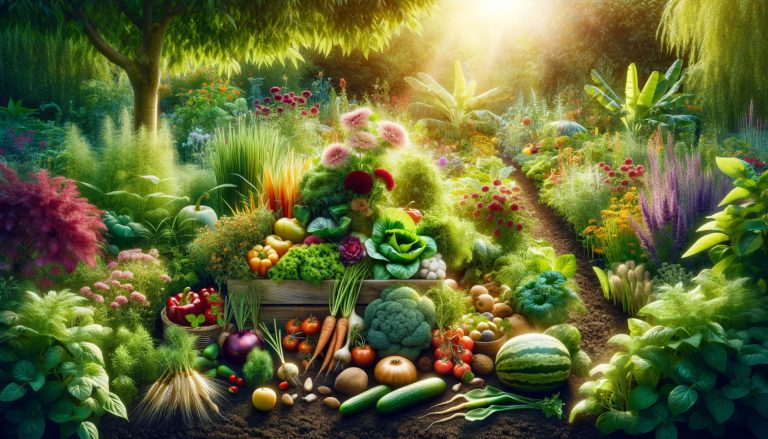
The Benefits of Organic Seeds
Now that we have a foundational understanding of what organic seeds are, let’s delve into the numerous advantages they offer to growers of all kinds.
- Environmental Friendliness: Organic seeds are the embodiment of sustainable farming. By choosing them, you’re contributing to reduced environmental impact. These seeds are cultivated in eco-friendly environments, promoting biodiversity and reducing the use of synthetic chemicals that harm the planet.
- Healthier Plants: Organic seeds are more likely to produce healthier and more robust plants. Since they are raised in nutrient-rich, chemical-free soil, they have a head start in life, resulting in stronger resistance to pests and diseases.
- Nutrient-Rich Produce: The ultimate goal of any gardener or farmer is to produce nutritious and delicious crops. Organic seeds, nurtured in natural conditions, tend to yield produce that is richer in essential nutrients and often has superior taste and texture.
- Non-GMO Assurance: Organic seeds are a reliable choice for those who wish to avoid genetically modified organisms (GMOs). These seeds are GMO-free, ensuring that the plants you grow are as nature intended.
- Support for Sustainable Agriculture: By purchasing organic seeds, you’re supporting sustainable agriculture practices. This helps maintain soil fertility, conserve water resources, and reduce the overall carbon footprint of your gardening or farming endeavours.
- Seed Diversity: Organic seed producers often focus on preserving heirloom and rare varieties. This contributes to the preservation of seed diversity, which is crucial for maintaining a robust and resilient food system.
As you can see, the benefits of opting for organic seeds extend beyond your garden or farm. They encompass a commitment to a more sustainable and health-conscious way of life. In the following sections, we’ll explore how to make informed choices when selecting organic seeds and provide practical tips to help you succeed in your cultivation journey.
Factors to Consider When Choosing Organic Seeds
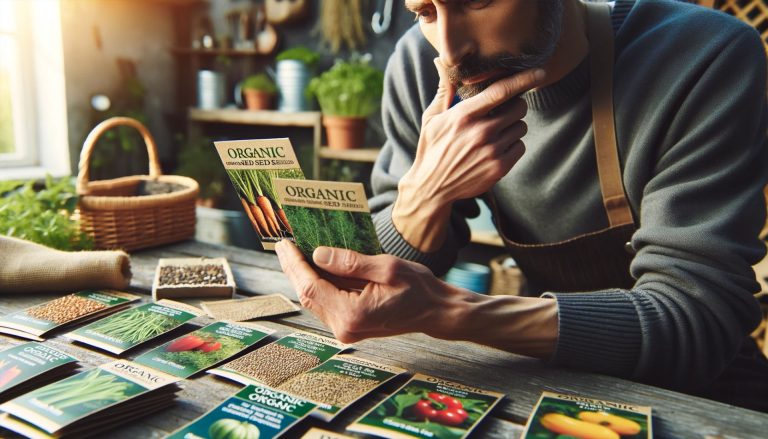
Selecting the right organic seeds for your garden or farm is a crucial step towards a successful harvest. To make informed choices, consider the following factors:
- Variety: Different plants have different needs. Ensure the seed variety you choose is well-suited to your climate and growing conditions. Research which plants thrive in your region.
- Source: Trustworthy sources matter. Purchase organic seeds from reputable suppliers or local producers with a track record of quality. Look for certifications that verify their commitment to organic practices.
- Germination Rate: Check the germination rate indicated on the seed packet. A higher germination rate means more of your seeds are likely to sprout and grow into healthy plants.
- Purity: Ensure the seeds are pure and haven’t been cross-pollinated with other varieties, especially if you plan to save seeds from your harvest for future planting.
- Certifications: Look for organic certifications such as USDA Organic or equivalent standards in your country. These certifications guarantee that the seeds have been produced in accordance with organic farming practices.
- Non-GMO: If you want to avoid genetically modified organisms, choose seeds labelled as non-GMO or explicitly state their GMO-free status.
- Storage Conditions: Pay attention to how the seeds have been stored. Seeds should be kept in cool, dry conditions to maintain their viability.
- Freshness: Fresher seeds tend to have higher germination rates. Check the packaging date or inquire about the seed’s age when purchasing.
- Adaptability: Consider the adaptability of the plant to your specific growing conditions. Some varieties may be better suited to your soil, climate, or garden size.
- Open-Pollinated or Heirloom: If you’re interested in preserving seed diversity and heritage varieties, choose open-pollinated or heirloom seeds. These can be saved and replanted year after year.
By keeping these factors in mind, you’ll be well on your way to making informed and successful choices when selecting organic seeds. In the next section, we’ll provide you with practical tips to ensure that your organic seed selection leads to healthy and thriving plants.
Tips for Successful Organic Seed Selection
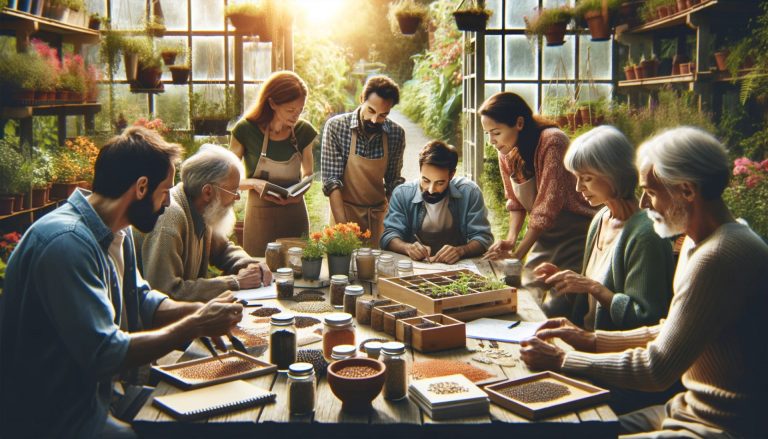
Choosing the right organic seeds can significantly impact the success of your gardening or farming venture. Here are some practical tips to help you make informed selections:
- Research Your Growing Zone: Determine your USDA plant hardiness zone or equivalent in your region. This information will guide you in selecting plant varieties that are well-suited to your climate.
- Read Seed Catalogs: Seed catalogues are valuable sources of information. They provide details about each seed variety, including growth habits, ideal growing conditions, and flavour profiles for vegetables.
- Ask for Recommendations: Consult with local gardening clubs, fellow gardeners, or farmers in your area. They can provide insights into which organic seeds perform well locally.
- Consider Companion Planting: Some plants thrive when grown alongside specific companions. Research companion planting to enhance the health and productivity of your garden.
- Start with What You Love: Grow plants you enjoy eating or looking at. Gardening is more rewarding when you’re passionate about what you’re cultivating.
- Plan for Succession Planting: To extend your growing season, plan for succession planting. Choose seeds that mature at different times to ensure a continuous harvest.
- Buy Extra Seeds: It’s wise to purchase a few extra seeds than you think you’ll need. This accounts for any seeds that may not germinate or for future planting.
- Save Seeds: If you’re experienced and want to contribute to sustainability, consider learning how to save seeds from your organic crops for future use.
- Support Local Producers: Whenever possible, buy organic seeds from local producers or farmers’ markets. Supporting local businesses contributes to the vitality of your community.
- Experiment and Learn: Gardening is an ongoing learning process. Don’t be afraid to experiment with different seed varieties and growing techniques to discover what works best for you.
By following these tips, you’ll be well-prepared to select organic seeds that align with your gardening goals and increase your chances of achieving a healthy and bountiful harvest. In the upcoming sections, we’ll delve into inspiring case studies and common pitfalls to watch out for in the world of organic seed selection.
Case Studies: Success Stories
What better way to understand the impact of organic seed selection than by exploring the experiences of those who have walked the path before you? In this section, we’ll dive into inspiring case studies that showcase the power of choosing organic seeds.
1. The Thriving Backyard Garden
Meet Sarah, a passionate home gardener. Sarah decided to switch to organic seeds after noticing declining yields and pest problems in her backyard garden. She carefully selected organic seeds tailored to her region and soil conditions. The results were astounding – her garden flourished with healthier, more robust plants that required fewer pesticides.
2. Sustainable Farming Triumph
John and Emily run a small-scale organic farm. They made the conscious choice to source all their seeds from local, certified organic producers. This commitment to organic seed selection not only improved the quality of their produce but also helped them gain a loyal customer base who appreciated their dedication to sustainable agriculture.
3. The Community Garden Transformation
In a bustling urban neighbourhood, a community garden was struggling with poor soil quality and limited space. With the guidance of an experienced gardener, they switched to organic seeds and adopted companion planting techniques. The garden transformed into a thriving oasis, producing fresh, organic vegetables for the entire community.
These stories exemplify the positive outcomes that can result from prioritizing organic seed selection. They demonstrate how organic seeds can lead to healthier, more sustainable, and fruitful gardens and farms. As we move forward, we’ll explore common pitfalls to avoid when choosing organic seeds to ensure your journey is as smooth and rewarding as possible.
Common Pitfalls to Avoid
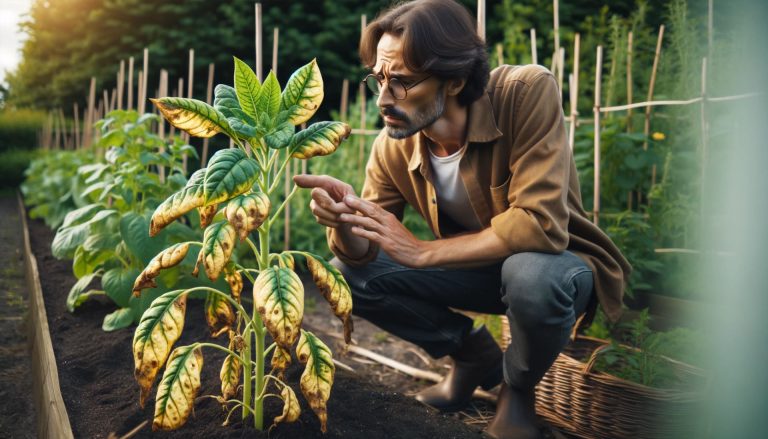
While organic seed selection is a rewarding endeavour, it’s not without its challenges. Here are some common pitfalls to be aware of and how to navigate them:
- Not Researching Local Conditions: Neglecting to research your local climate, soil type, and pest pressures can lead to choosing seeds ill-suited to your area. Always consider your specific growing conditions when selecting seeds.
- Ignoring Seed Quality: Don’t compromise on seed quality to save money. Low-quality seeds may lead to poor germination rates and unhealthy plants. Invest in high-quality organic seeds for better results.
- Forgetting to Rotate Crops: Continuous planting of the same crop in the same spot can deplete soil nutrients and invite pests and diseases. Implement crop rotation strategies to maintain soil health.
- Overlooking Seed Storage: Improperly stored seeds can lose their viability. Store your seeds in a cool, dry place in airtight containers to maintain their freshness.
- Falling for Misleading Labels: Not all “organic” labels are equal. Be cautious of unverified claims. Look for trusted certifications like USDA Organic to ensure authenticity.
- Neglecting Seed-Starting Techniques: Proper seed-starting techniques are essential for healthy seedlings. Follow recommended guidelines for planting depth, spacing, and timing.
- Excessive Variety Selection: While diversity is valuable, planting too many different varieties can be overwhelming and challenging to manage. Focus on a manageable selection of plants.
- Skipping Soil Preparation: Preparing your soil adequately is crucial for seedling success. Don’t skip soil testing, amendment, and preparation steps before planting.
- Not Monitoring and Adjusting: Gardening requires ongoing attention. Regularly monitor your plants for signs of stress, pests, or diseases and adjust your care accordingly.
- Rushing the Process: Organic gardening takes time and patience. Don’t rush the growing process; let nature take its course, and you’ll be rewarded with healthier plants.
You’ll be better equipped to make the most of your organic seed selection journey by being aware of these common pitfalls and taking proactive measures to avoid them. In the final section, we’ll wrap up our discussion and summarise the key takeaways from this article.
Conclusion
As we conclude our exploration of organic seed selection, it’s clear that the humble seed holds immense power in shaping the future of your garden or farm. By choosing organic seeds, you’re not only sowing the potential for bountiful harvests but also committing to a more sustainable and environmentally friendly approach to cultivation.
Throughout this article, we’ve learned:
- The importance of understanding what organic seeds are and why they matter.
- The numerous benefits of opting for organic seeds, from environmental friendliness to healthier plants and nutrient-rich produce.
- Key factors to consider when choosing organic seeds, ensuring you make informed selections.
- Practical tips for successful organic seed selection, allowing you to maximise your chances of gardening or farming success.
- Inspiring case studies that highlight the transformative power of organic seed selection.
- Common pitfalls to avoid on your organic seed selection journey, helping you navigate challenges more effectively.
By prioritizing organic seed selection, you become a steward of healthier growth, supporting both your own well-being and that of the planet. As you embark on your gardening or farming journey, remember that each seed you plant carries the promise of a greener, more sustainable future.
So, whether you’re nurturing a backyard garden, tending to a small farm, or simply nurturing a few pots on your balcony, let organic seed selection be the foundation upon which your dreams of healthy and thriving growth are built. Your garden, and the planet, will thank you for it.
Frequently Asked Questions (FAQs)
What are organic seeds, and how are they different from conventional seeds?
A: Organic seeds are produced through organic farming practices, which exclude the use of synthetic pesticides, herbicides, and GMOs. They are grown in eco-friendly environments, promoting biodiversity and sustainable agriculture. Conventional seeds, on the other hand, may be grown using synthetic chemicals and GMOs.
Why should I choose organic seeds over conventional ones?
A: Organic seeds align with sustainable and eco-friendly agriculture. They often result in healthier plants, nutrient-rich produce, and support for sustainable farming practices. Choosing organic seeds contributes to a healthier environment and better-quality crops.
How can I ensure the organic seeds I purchase are genuine?
A: Look for reputable suppliers with organic certifications like USDA Organic. Read seed labels carefully, ask for recommendations from experienced growers, and consider buying from local producers to increase your confidence in seed authenticity.
Are all organic seeds non-GMO?
A: While organic seeds are generally non-GMO, it’s essential to check for specific labels or information on the seed packet to confirm their non-GMO status. Organic seeds should be free from genetically modified organisms.
Can I save seeds from my organic crops for future planting?
A: Yes, you can save seeds from your organic crops, but following proper seed-saving techniques is essential to maintain purity and viability. Research the specific requirements for each plant variety you wish to save.
What are some common mistakes to avoid when selecting organic seeds?
A: Common pitfalls include not researching local conditions, neglecting seed quality, failing to rotate crops, ignoring seed starting techniques, and rushing the growing process. Be aware of these challenges to ensure success.
How can I choose the right seed varieties for my garden or farm?
A: Consider factors like your local climate, soil type, and personal preferences when selecting seed varieties. Research which plants thrive in your region and consult with experienced gardeners for recommendations.
Are heirloom and open-pollinated seeds the same as organic seeds?
A: Heirloom and open-pollinated seeds can be organic, but they are not synonymous. Heirloom and open-pollinated seeds refer to traditional or heritage varieties that can be saved and replanted year after year, promoting seed diversity.

